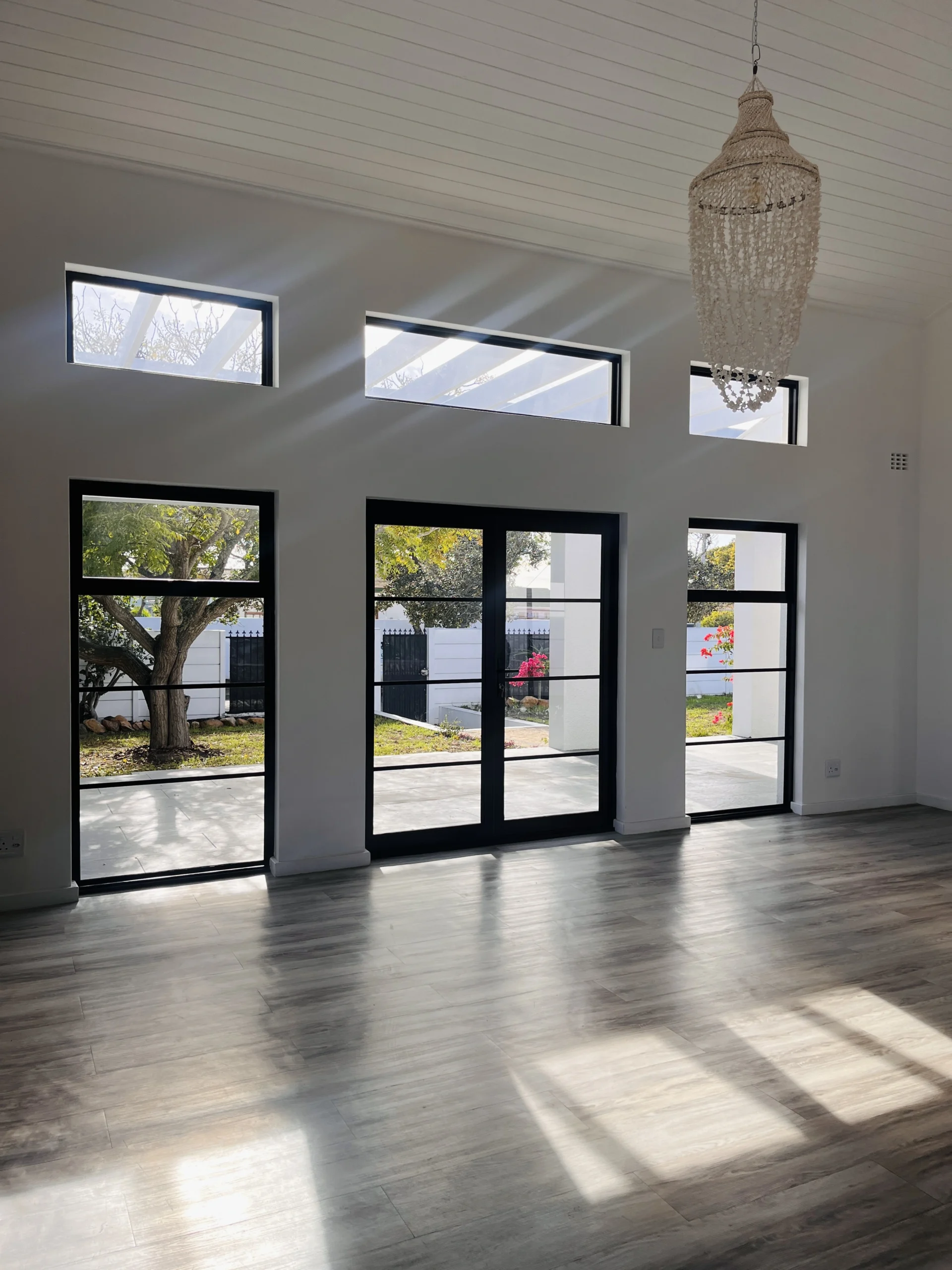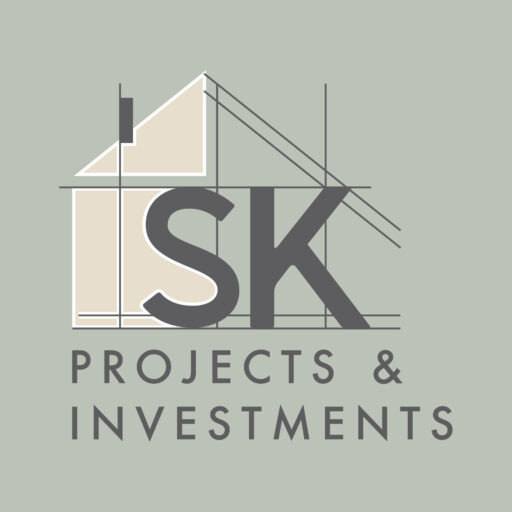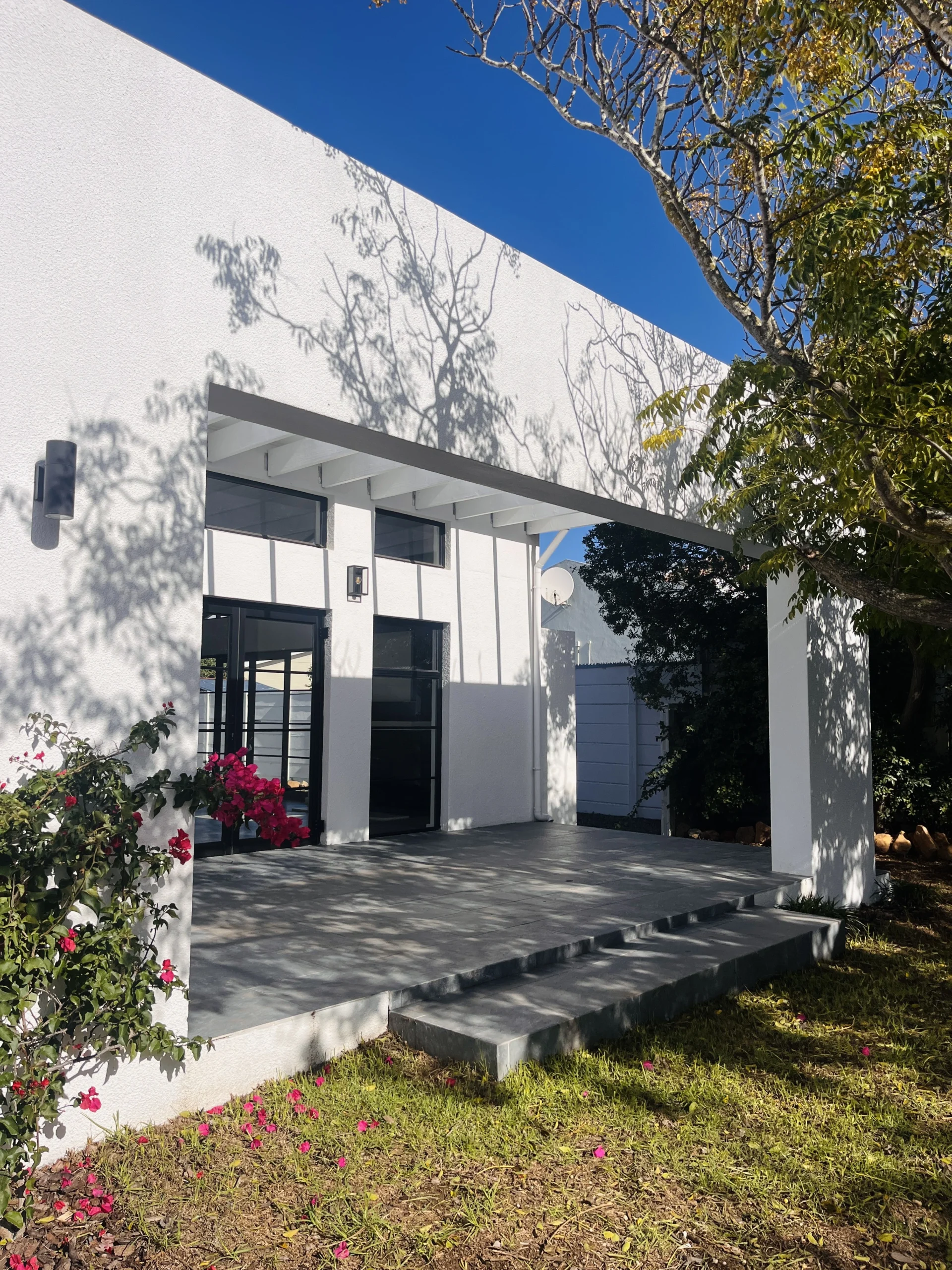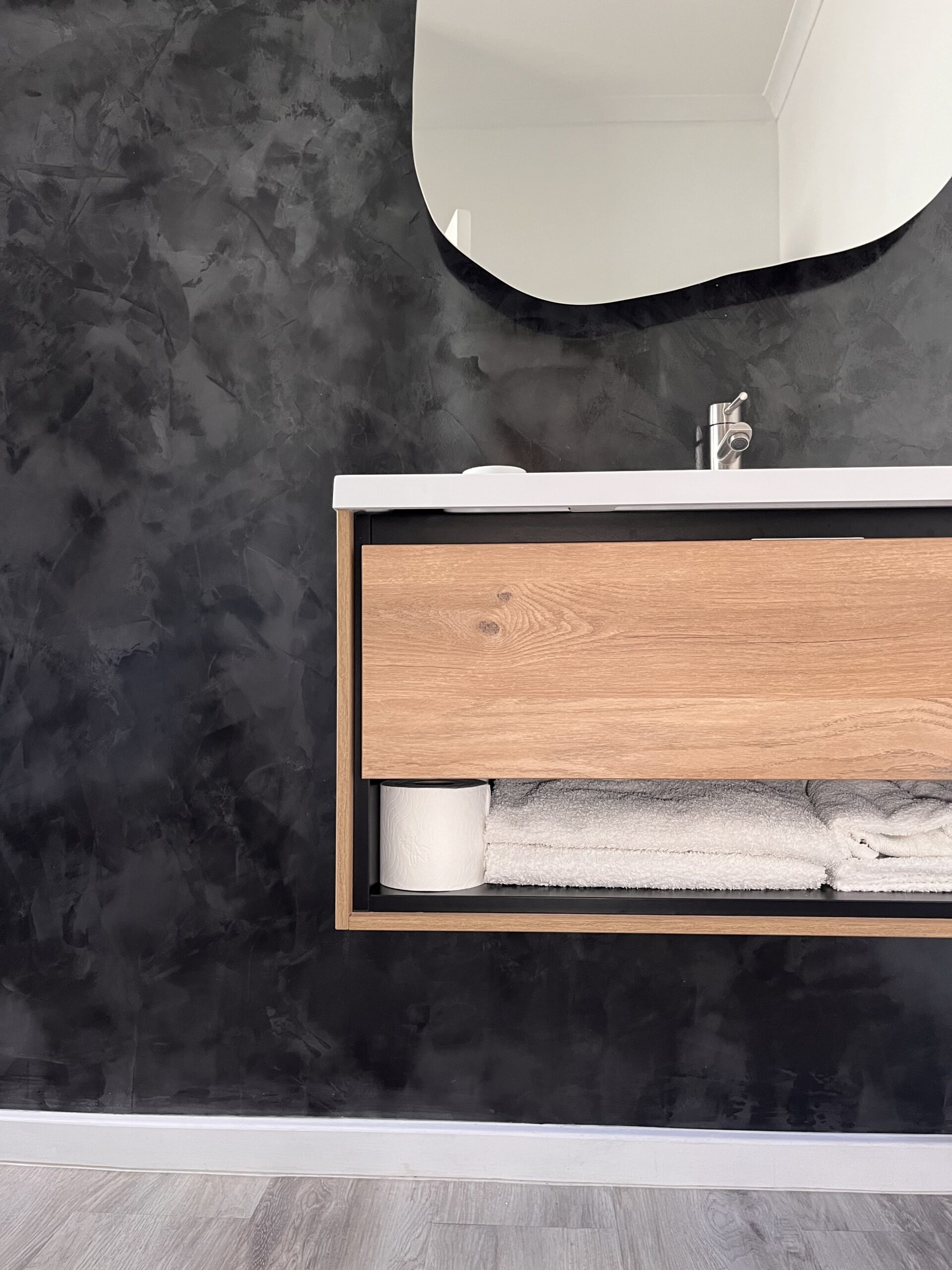Cape town home renovation?
20 Essential tips to a successful reno:
Cape Town’s property market is layered and rich in it’s variety — with charming heritage homes, bold architecture and everything in between.
A Cape town home renovation comes with unique challenges- Whether you’re updating your family home or revamping a recent investment property, the need to have it done right is high. Renovating is about visual improvement yes, but it’s more importantly about protecting your capital, enhancing your lifestyle, and making considered, value-aligned decisions.
If you’re planning more than just a surface update, these 20 expert-backed tips will guide your Cape Town home renovation project with clarity and confidence.
Think Before You Build – Laying the Groundwork
Tip 1: Clarify your purpose from day one:
Are you renovating to sell in 18 months, to raise your family here for the next decade, or to create a secondary income stream? Your intentions define every design, layout, and budget choice that follows. Be clear about your reason — and revisit it often.
Tip 2: Understand your area’s property ceiling:
Before you commit to major home renovation changes, consult with a local property agent. It’s good know the current ceiling price for homes in your area — and whether your planned renovations will sit comfortably within the average home price ceiling of the area or overshoot it.
Tip 3: Design for lifestyle or resale – not both:
You can’t please the future buyer and yourself equally. If you’re renovating for long-term personal use, tailor it to your taste. But if resale is your focus, stick with classic layouts, neutral palettes, and universally desirable features.
Budget your home renovation with Intention
Tip 4: Build in a contingency buffer — always:
No matter how thorough the quote, renovations often reveal hidden costs — think damp issues, outdated fixtures, or structural surprises. A buffer of 15–20% is not a luxury. It’s a smart essential.
Tip 5: Focus on high-return areas first:
Kitchens, bathrooms, and living zones offer the highest return on investment, both in resale and in lived experience. Prioritise functionality and flow over flashy finishes.
Tip 6: Choose materials that reflect your area and asset:
Imported Italian marble may be suitable for a Clifton home, but not for a Rondebosch rental. Match your finishes to the level of your property and location — not just your Pinterest board.

Know the Legal Landscape to a Cape Town home renovation
Tip 7: Confirm approvals before you build:
If you’re planning a home renovations in Cape Town, don’t underestimate the approval timelines. Cape Town’s municipal approval processes can be slow and detail-heavy. If your renovation involves structural changes, extensions, or plumbing alterations, you’ll need plans approved- Budget time accordingly.
Tip 8: Heritage zoning demands sensitivity:
If your home is in a heritage overlay zone — common in areas like Oranjezicht, Muizenberg, Simon’s Town, and surprisingly, parts of suburbs you might not expect — you’ll face stricter renovation rules. In Cape Town, any home older than 60 years may also require heritage approval, even if it’s not in a formal overlay zone. Always work with an architect experienced in heritage renovations and familiar with the City of Cape Town’s heritage requirements.
According to the National Heritage Resources Act (Act 25 of 1999), any structure older than 60 years is automatically protected and cannot be altered without a permit from the relevant heritage authority — in Cape Town, this is Heritage Western Cape (HWC).
This applies even outside of heritage overlay zones.
Assemble the Right cape town home renovation Team
Tip 9: Don’t default to the lowest quote:
In construction, what’s left out of a quote often matters more than what’s in it- for example for a full home renovation, look out for a detailed quote. Look for a clear scope of work, line-item details, and a team willing to explain each element. A higher quote that includes realistic timeframes, quality materials, and skilled oversight often ends up costing less in the long run while adding more value to your property.
Tip 10: Verify workmanship and track record:
Past projects say more than a pitch ever will. Check recent renovations, especially those done in Cape Town homes similar to yours. Scroll through business social media, read Google reviews, and ask questions. Solid workmanship matters — but so do discretion, reliability, and clear communication. You’re not just hiring a skillset, you’re hiring a team you’ll need to trust in your space.
Tip 11: Work with NHBRC-registered builders only:
The National Home Builders Registration Council exists to protect homeowners – which is why Cape Town property owners planning a home renovation trust it’s stamp of approval – any builder or contractor worth their salt will be registered and insured.

Make Smart home Design Decisions
Tip 12: Kitchens and bathrooms are where the value lies:
These spaces influence both buyer perception and day-to-day comfort. They date quickly and, unless done by the right team. they can renovate slowly — so do kitchen and bathroom renovations properly, and do them early.
Tip 13: Avoid over-customisation:
It’s tempting to add a wine cellar, a bespoke study, or statement wallpaper in every room. But unless these features speak directly to your lifestyle, they may limit future appeal. Balance individuality with broad appeal.
Tip 14: Don’t underestimate outdoor living:
A functional, well-shaded patio or entertainment space is gold in the Cape Town market. These areas don’t just extend your living footprint — they sell lifestyle.
Renovate your home for the Cape’s Climate
Tip 15: Account for energy and water security:
Solar systems, inverters, and water tanks aren’t “nice to have” anymore. They’re fast becoming expected of smart homeowners. Plan for them from the start rather than rushing it later.
Tip 16: Select finishes that endure:
UV, salt air, and moisture are relentless here. Choose materials and finishes rated for local conditions — from window frames to roof treatments and external joinery.
Avoid Common (and Costly) home renovation Oversights
Tip 17: Resist the urge to rush:
Pushing timelines rarely ends well. Quality takes time — especially when working with premium materials or architectural detailing. Plan realistically, and allow breathing room.
Tip 18: Insist on a detailed, written contract:
It should cover payment terms, timelines, scope of work, and various terms and conditions. Even with a trusted team, clarity prevents tension.
Post-Reno Peace of Mind
Tip 19: Don’t skip the snag list:
The final inspection is where many details — alignment, finish, joinery — come into sharp focus. Take it seriously. Walk through the space with fresh eyes, or bring in a third-party inspector if needed.
Tip 20: Keep every document safely stored:
Your approved plans, guarantees/warranties, compliance certificates — they all matter. Keep both digital and physical copies. One day, your future self (or buyer) will thank you.
FAQ – home Renovation Questions:
Q1: Do I need plans for internal renovations only?
If you’re not moving structural walls, adjusting the roof, or relocating plumbing — plans might not be needed. But don’t assume. With a Cape Town home renovation, even small changes (like enclosing a balcony or opening up a room) can trigger approval requirements. Always check with your architect or consult the City of Cape Town’s Planning Department directly.
Q2: Can I live in my home during the renovation?
Yes, in many cases — especially if work is limited to one part of the house. But for major structural changes or full gut jobs, it’s often faster, safer, and more practical to move out temporarily. Keep in mind: demolition, water interruptions, and dust make daily life on-site tricky.
Q3: How long does a typical renovation take?
-
Kitchen or bathroom upgrade: 4–6 weeks
-
Full internal renovation: 3–4 months
-
Additions or extensions: 4–6 months, depending on approvals
These are rough estimates. Delays can happen due to municipal approvals, material lead times, or contractor schedules. Always factor in a buffer when planning.
Q4: Should I use an architect or designer?
For anything structural — yes. An architect is key when it comes to layout changes, compliance with local building codes, and plan submissions. Designers are best for interior styling, finishes, and layout tweaks. For a seamless project, the two often work hand-in-hand.
Q5: What insurance do I need during renovations?
Let your home insurer know about the upcoming renovation. You don’t want coverage issues if something goes wrong. Your contractor should carry:
-
Public liability insurance
-
Builder’s risk / all-risk construction cover
-
Workman’s compensation (for their staff)
Q6: How do I check if a builder is NHBRC-registered?
Ask for their NHBRC registration certificate — or look them up at nhbrc.org.za. In South Africa, NHBRC registration is required for structural builds and new homes. Even if your project doesn’t legally require it, it’s a strong indicator of professionalism and accountability.
Final Word:
A Cape Town home renovation can be smooth and even enjoyable — but only if the right groundwork is in place. Whether it’s plans, permits, or professional teams, don’t cut corners. Speak to experienced people. Ask questions. And expect transparency.
Planning a Cape Town home renovation?
Renovate your home with Purpose and Confidence
Renovation isn’t about chasing trends- It’s about making deliberate decisions that align with your property’s potential, your lifestyle, and the market you’re in.
If you’re considering a Cape Town home renovation — whether it’s a quiet refresh or a full-scale transformation — the best place to start is with informed advice.
👉 Book a confidential consultation with the SK team — an experienced take on what’s possible with your Cape Town home renovation or property development.
Email: shaheen@skprojects.co.za
Phone: 082 921 9190
Follow Us: Instagram @sk_projects_and_investments for home renovation and property investment tips, advice, and stunning before-and-afters.
Contact SK Projects and Investments for expert guidance and quality assurance in your next Cape Town home renovation or development project. Ensure your investment today builds the value of tomorrow.










